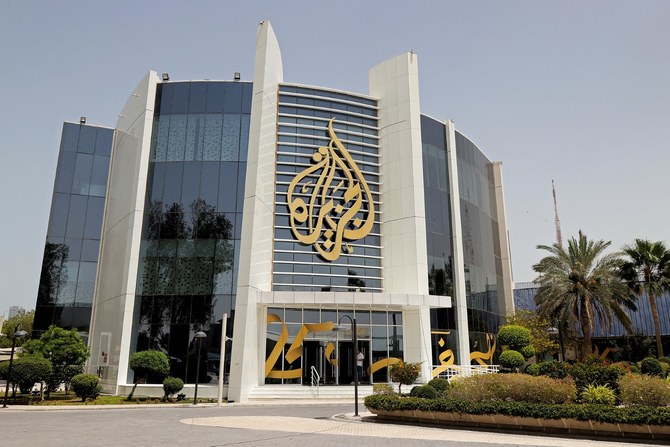Image Source: Arab News
South Africa – “Al Jazeera is certainly an alternative voice in Palestine. Without Al Jazeera, you’re not going to see the other side of the story,” said Mail & Guardian CEO Thembisa Fakude in response to the Knesset’s unanimously voted law shutting down Al Jazeera operations in occupied Palestine.
On Monday, Israeli Prime Minister Benjamin Netanyahu announced via a post on X his intention to promptly enforce the new law to cease the channel’s operations within the Occupied country.
Moreover, he levelled accusations against the Qatar-based broadcaster, alleging it posed a threat to Israel’s security and was actively involved in the October 7 attack, as well as inciting against Israeli soldiers.
Subsequently, Al Jazeera rebuffed the Israeli government’s accusations, labelling them as falsehoods. They also “reiterated that such slanderous accusations will not deter [them] from continuing [their] bold and professional coverage.”
Fakude asserts that the global media is facing challenges from people in positions of authority, and this legislation, aligning with Israel’s actions, aims to silence the voices representing Palestinians and the ongoing situation in Gaza. It is perceived as an attempt to stifle freedom of expression and intimidate journalists.
Furthermore, he emphasised that Al Jazeera stands out among the limited number of media outlets reporting accurately on the plight of Palestinians across all occupied territories. They are among the few capable of exerting pressure on the Israeli government regarding its mistreatment of Palestinians.
“Other media organisations have tried to continue telling the stories from their own lenses, but we know there’s been a lot of propaganda. They are currently embedded with the IDF … So their perspective of what’s going on is largely impacted by that bias. Whereas Al Jazeera is largely independent journalists who try to tell the stories that are supposed to be told.”
SMread| South Africans Rediscovering the True Essence of Ramadan Amid Global Challenges
Attack on Journalists and The Media
Across the globe, journalists are subject to censorship, detention, intimidation, and, tragically, even loss of life. Therefore, international institutions have consistently called for an end to the escalating violence, attacks, repression, and constraints on journalists and media freedom.
Since the start of the war in Gaza, Israeli forces have been implicated in the deaths of over 130 journalists. Al Jazeera’s personnel have been particularly affected, with reports of killings, threats, injuries, detentions, and assaults. Additionally, some have endured threats and violence targeting their families.
In response to the law aimed at banning international media outlets perceived as national threats by the Israeli government, the Committee to Protect Journalists (CPJ) contends that it will only exacerbate hostilities towards journalists.
“This [law] contributes to a climate of self-censorship and hostility toward the press, a trend that has escalated since the Israel-Gaza war began.”
This recent focus on Al Jazeera marks another instance in a series of assaults by Israel and its ally, the United States, on the media outlet. Reports from last year indicated that the US Secretary of State had urged the Qatari government to moderate Al Jazeera’s coverage of the genocide.
Additionally, Israel has made repeated attempts to suppress Al Jazeera’s reporting, including a past incident where they targeted Al Jazeera’s offices in Gaza City with an airstrike, resulting in the destruction of the building.
Fakude cautioned that such rhetoric and assaults on the press, along with its institutions and personnel, by Israel and its allies, could perpetuate and undermine democratic norms, rights, and freedoms, setting a precedent for other nations to follow suit.
“Journalists are still treated as the enemies of the state and the public is mobilised to work against them and to be hostile to them.”
He reflected that regardless of journalists’ reputations, they will persist in facing the precarious circumstances of persecution, censorship, and intimidation. This is due to their lack of resources and authority to combat the systemic suppression and persecution perpetuated by authoritarian regimes and repressive governments.
